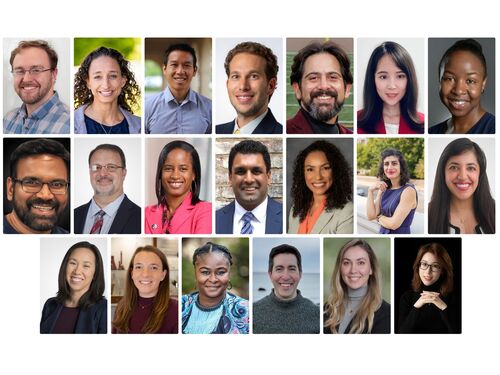Gulf Research Program’s 2021 Early-Career Research Fellowship Program Introduces Track with a Health Equity Focus
News Release
By Stephanie Miceli
Last update December 11, 2020
WASHINGTON — The Gulf Research Program (GRP) of the National Academies of Sciences, Engineering, and Medicine today announced it has redesigned its Early-Career Research Fellowship (ECRF) to include three tracks: Human Health and Community Resilience, Environmental Protection and Stewardship, and Offshore Energy Safety. These changes will go into effect for the 2021 fellowship year.
The application deadline for the Human Health and Community Resilience track is Jan. 13, 2021, at 5 p.m. EST. Applications for the remaining tracks will be announced in the spring of 2021.
The GRP introduced the three-track system to refine the focus of the ECRF fellowship, create a more tailored educational experience for fellows, and generate research that effects positive change in the Gulf of Mexico region.
“Our ECRF fellows inevitably apply a health equity lens to their work — whether their research interests are water quality hazards, sustainable fishing ecosystems, or disparities in hurricane and flood recovery,” said Karena Mary Mothershed, program head and senior program officer for the GRP’s Board on Gulf Education and Engagement. “The goal of the ECRF’s new Human Health and Community Resilience track is to address the unique health needs of communities in the Gulf region and Alaska. Many of these communities are vulnerable to natural disasters. We have an opportunity to help them build a healthier future, and preserve the areas where they live, work, and play.”
Fellows who pursue the Human Health and Community Resilience track must explicitly focus on the social and environmental determinants of health. These areas may include air and water quality, housing, food security, transportation access, public safety, and employment.
ECRF awardees, all investigators, faculty members, clinician scientists, or scientific team leads at colleges, universities, and research institutions are selected for their superior scholarship, technical and scientific rigor, and preparation to work at the intersections of environmental health, community healing and resilience, and offshore energy system safety in the Gulf and other U.S. coastal regions.
Since the ECRF awards are not attached to a specific project, fellows are able to pursue bold, nontraditional research that they otherwise might not be able to conduct. Each of the selected fellows will receive a $76,000 financial award, mentoring support, and a built-in community of current and past ECRF cohorts. Nearly 88 Early-Career Research Fellowships have been awarded since 2015.
To learn more about the Gulf Research Program’s Early-Career Research Fellowships, visit nationalacademies.org/our-work/early-career-research-fellowship.
The National Academies’ Gulf Research Program is an independent, science-based program founded in 2013 as part of legal settlements with the companies involved in the 2010 Deepwater Horizon disaster. It seeks to enhance offshore energy system safety and protect human health and the environment by catalyzing advances in science, practice, and capacity to generate long-term benefits for the Gulf of Mexico region and the nation. The program has $500 million for use over 30 years to fund grants, fellowships, and other activities in the areas of research and development, education and training, and monitoring and synthesis. Visit nationalacademies.org/gulf/gulf-research-program to learn more.
The National Academies of Sciences, Engineering, and Medicine are private, nonprofit institutions that provide independent, objective analysis and advice to the nation to solve complex problems and inform public policy decisions related to science, technology, and medicine. The National Academies operate under an 1863 congressional charter to the National Academy of Sciences, signed by President Lincoln.
Contact:
Stephanie Miceli, Media Relations Officer
Office of News and Public Information
202-334-2138; e-mail news@nas.edu
More like this
Discover
Events
Right Now & Next Up
Stay in the loop with can’t-miss sessions, live events, and activities happening over the next two days.
NAS Building Guided Tours Available!
Participate in a one-hour guided tour of the historic National Academy of Sciences building, highlighting its distinctive architecture, renowned artwork, and the intersection of art, science, and culture.



